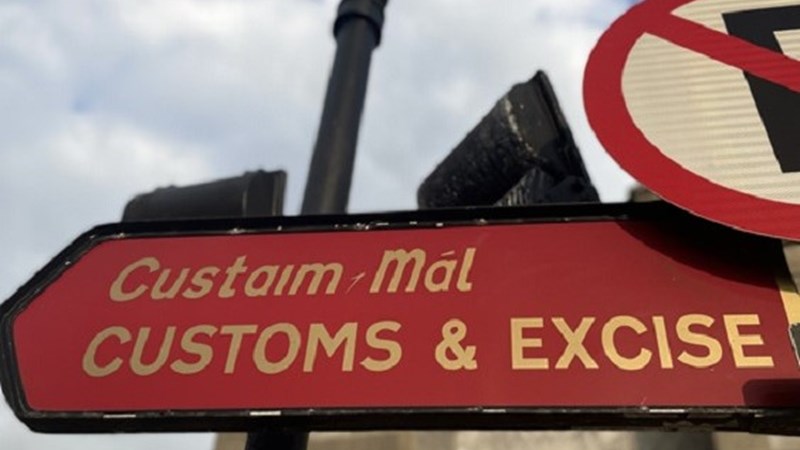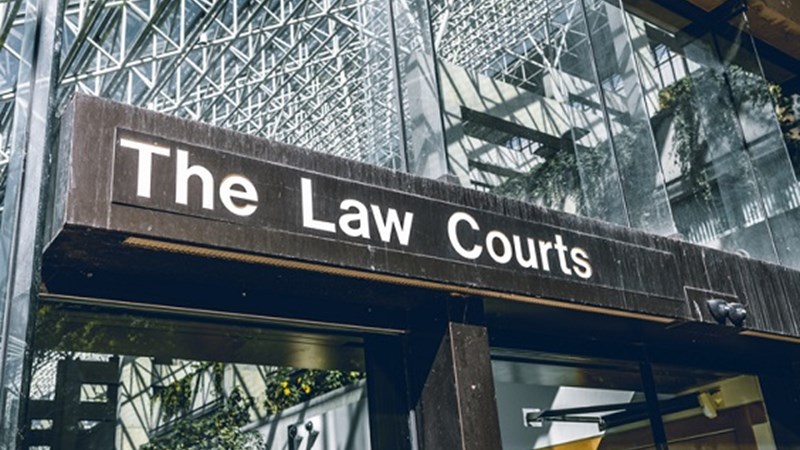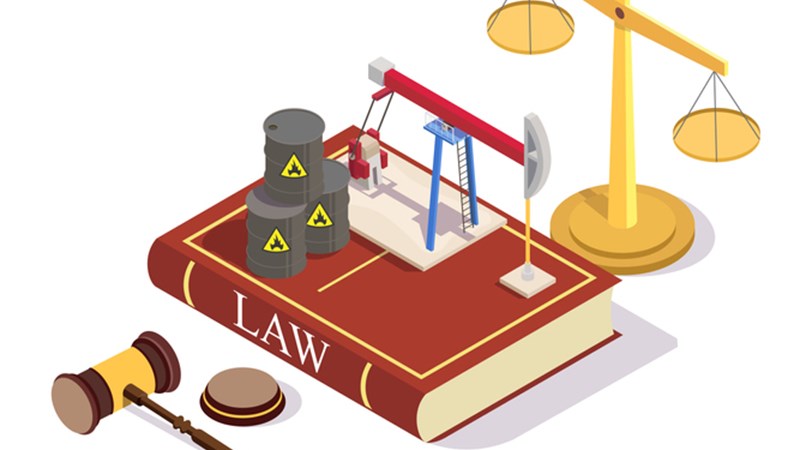Cigarette smuggling - who has the burden of proof under the CMR?
April 2024
Carrier Ritmo is commissioned by Hinskens to transport four boxes of kitchenware from the Netherlands to the UK. During a customs inspection in France, the boxes are found not to contain kitchenware, but cigarettes for which no excise duty was paid. Carrier Ritmo holds consignor Hinskens liable for the damage it suffered as a result. Does Ritmo have to prove that the boxes handed to it by Hinskens contained cigarettes, or does Hinskens have to prove that the boxes only contained kitchenware?
The facts of the case
Ritmo was commissioned by Hinskens to transport four pallets of boxes from Landgraaf, the Netherlands to Farnsfield, U.K. These pallets of boxes had previously been delivered to Hinskens in Landgraaf at the instructions of the Bulgarian company Terra. Ritmo's driver loaded the consignment at the premises of Hinskens on 21 October 2015. The contents of the boxes were not visible. The CMR waybill stated that the boxes contained kitchenware.
The driver carried the consignment from Landgraaf to Ritmo's warehouse in Eindhoven, the Netherlands. On the way to Eindhoven, he made two stops in Kerkrade of 5 minutes and 35 minutes respectively. In Eindhoven, the goods were transferred to another truck driven by another driver. That same evening, the driver was stopped for inspection by French customs near Calais in France. During the inspection, the boxes in question were found to contain cigarettes on which no excise duty had been paid. French customs subsequently detained the driver and confiscated the truck and trailer for some time.
District Court
Ritmo suffered damage as a result of the smuggling of cigarettes. Because Hinskens was unwilling to compensate the damage, Ritmo started proceedings before the Limburg District Court. According to Ritmo, the boxes it received for transportation did not contain kitchenware but cigarettes. Thus, the CMR waybill contained incorrect information about the content of the boxes. In addition, Hinskens had not provided Ritmo with the necessary information to comply with customs formalities. For these reasons Hinskens is liable for damages, at least according to Ritmo.
In turn Hinskens argued that the contents of the boxes handed to Ritmo for transportation consisted only of kitchenware. According to Hinskens, it is conceivable that during the journey from Landgraaf to Eindhoven, or during transhipment in Eindhoven, the boxes of kitchenware were swapped for boxes of cigarettes. Accordingly Hinskens claimed not to be liable for the damage suffered by Ritmo.
According to the District Court it is not at all plausible that French customs found other pallets of boxes than those collected by Ritmo from Hinskens.[1] The court ruled that it was up to Hinskens to substantiate its claim that the boxes handed to Ritmo actually contained kitchenware. The court found, inter alia, that (i) Hinskens itself had stated that it had not checked the contents of the boxes, (ii) Hinskens had received the boxes from the Bulgarian company Terra, which Ritmo claims is a malafide company, (iii) according to Ritmo, the invoice for the kitchenware was addressed to a freight forwarder who had been declared bankrupt a year before the kitchenware was purchased and (iv) after Hinskens informed Terra about the inspection by French customs, Terra cancelled the transport order and closed its doors shortly afterwards. The court thus assumed that the boxes given to Ritmo contained cigarettes. Hinskens was ordered to compensate the damages suffered by Ritmo.
Court of Appeal
However the Den Bosch Court of Appeal reached a different conclusion. According to the court of appeal, Ritmo argued that what it received from Hinskens for transport was the same as what customs had found. That assertion was disputed by Hinskens with force of arguments. According to the court of appeal, Ritmo has, based on Article 150 of the Dutch procedural code, the burden of proof of its claim that the boxes containing cigarettes found by customs are the same boxes that had been handed over to Ritmo by Hinskens earlier that day.
Subsequently the Court of Appeal ruled that Ritmo had not provided the necessary evidence.[2] Ritmo's drivers, heard as witnesses, did not know - almost five years after the fact - what the color of the boxes was and could not state with certainty what kind of pallets the boxes were stacked on. The customs official report also did not show what color the boxes were and on what kind of pallets the boxes were stacked. According to the Court of Appeal, it can therefore not be ruled out that the boxes with cigarettes found by customs were placed in the first or second trailer by somebody else somewhere in the time between the loading of the trailer at the premises of Hinskens and the time of inspection by customs.
Ritmo pointed out that there were many irregularities surrounding consignor Terra and its relationship with Hinskens. For instance, the information supplied by Terra was false, the alleged seller of the kitchenware was a manufacturer of insulation material, the buyer of the kitchenware had been declared bankrupt a year before and the recipient of the purchase price was not Terra itself, but a consultancy firm. However, all the "doubts and shady issues" raised by Ritmo do not, in the court's opinion, alter the fact that Ritmo did not meet its burden of proof. Ritmo's claim is therefore dismissed on appeal.
Supreme Court
Ritmo subsequently brought the case to the Supreme Court. According to Ritmo a different burden of proof follows from the CMR than the one applied by the Court of Appeal. This division of burden of proof would imply that in a case like the present one, Ritmo could in principle suffice with proving that the cargo found by the customs authorities corresponds to what is stated on the waybill in terms of external features and destination. It is then up to the consignor to prove that the cargo as packed inside the boxes is not its own.
The Supreme Court noted that under Article 9 CMR the consignment note contains a presumption of proof of the terms of the contract of carriage and of receipt of the goods by the carrier.[3] And unless the carrier has made a reasoned reservation in the consignment note, it is presumed that the goods and their packaging were in apparent good condition at the time of taking delivery of the goods and that the number of packages and their marks and numbers were in accordance with the statement in the consignment note. But that presumption of evidence, according to the Supreme Court, does not extend to the question of whether the goods found by the customs authorities were the same as the goods handed over by Hinskens to Ritmo.
According to the Supreme Court this means that the burden of proof on this point is not determined by the CMR but by national law. Under Dutch law, under Article 150 of the Dutch Code of civil Procedure, Ritmo has the burden of proving the facts on which it bases its claim. The Supreme Court therefore upheld the judgment of the Court of Appeal of Den Bosch.
Comments
The CMR contains some rules of evidence that mainly concern what is noted on the consignment note and must have been checked by the carrier. These include the external condition of the goods and their packaging and the number of packages and their marks and numbers. The CMR contains no obligation for the carrier to check the actual contents of the packages.[4] This means that the consignment note therefore also contains no presumption of evidence as to the contents of the packages. It is therefore easy to follow why the Supreme Court comes to the conclusion that the CMR does not contain a rule of evidence regarding the contents of the goods received for carriage and that, therefore, national law is decisive for the burden of proof.
Article 150 of the Dutch Code of Civil Procedure stipulates that the person who invokes the legal consequences of facts alleged by him must provide proof thereof. It is therefore not incomprehensible that the Court of Appeal and the Supreme Court adhere to the starting point that carrier Ritmo, who claimed damages from consignor Hinskens, has to prove that the goods found by the customs authorities are the same as the goods handed over by Hinskens to Ritmo. The Attorney General, who advises the Supreme Court, does note that if a cargo is found with the same number of pallets and boxes and this corresponds to the waybill, this will obviously provide evidence of the assertion that it is still the same cargo. However there may also be circumstances that make this not (yet) sufficient proof and such a situation exists according to the Court of Appeal, the Attorney General said.
This suggests that the Attorney General does not place too high a burden of proof on this issue. Had Ritmo made no intermediate stops and not transhipped the cargo, it would probably have met its burden of proof. However the problem is that in logistics it is the rule rather than the exception for a carrier to make intermediate stops and/or tranship goods. This makes it difficult for the carrier to provide the necessary evidence, especially as it does not check the contents of the packages.
Incidentally proving a fact does not imply absolute certainty about it. For the civil court it is sufficient to have a reasonable degree of certainty that the fact in question occurred.[5] Moreover the court is free to value the evidence. Thus the court itself determines what value it attaches to a particular piece of evidence. This also explains why the District Court reached a different opinion from the Court of Appeal. According to the District Court, Hinskens had not sufficiently disputed Ritmo's assertion that the boxes brought along contained cigarettes. The Court came by that judgment because of the obscure facts surrounding Terra's sale of the kitchenware. On the contrary the Court of Appeal held that Hinskens did sufficiently dispute Ritmo's assertion despite all the “shady issues". And because Ritmo subsequently failed to prove the contents of the boxes provided by Hinskens, its claim was still dismissed. It is clear that the Court of Appeal applied a correct standard when allocating the burden of proof. But I do have my doubts regarding its assessment of the evidence.
And finally one should keep in mind that this case was a rather one off case in which the carrier claimed damages from the consignor because the carried goods were not the goods as mentioned in the waybill. If it had been the other way round, that is to say that the waybill stated ‘boxes with cigarettes’ but in fact the boxes contained kitchenware, the consignor would have to prove that he actually handed over ‘boxes with cigarettes’ to the carrier and that these ‘boxes with cigarettes’ were ‘changed’ into ‘boxes with kitchenware’ during the transport. So the burden of proof shifts to the actual claimant.
* * *
[1] Limburg District Court 3 January 2018, ECLI:NL:RBLIM:2018:4.
[2] Den Bosch Court of Appeal 12 January 2021, S&S 2021/13.
[3] Supreme Court 16 September 2022, ECLI:NL:HR:2022:1222, S&S 2023/14.
[4] This is different only to the extent required by the consignor; see Article 8(3) CMR.
[5] Supreme Court 16 February 2018, ECLI:HR:2018:182.









